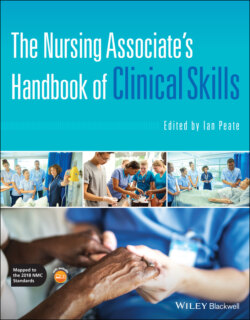Читать книгу The Nursing Associate's Handbook of Clinical Skills - Группа авторов - Страница 240
The Process
ОглавлениеAll complaints will be acknowledged no later than 3 working days after the day the complaint is received. This will usually be in writing; however, it can be given verbally in some situations; this is usually the exception as opposed to the norm. An offer should be made to discuss the following with the complainant:
The handling of the complaint
Timescales for responding
Expectations and desired outcome if unclear
If the complaint was given verbally, the complainant is given a copy of their verbal statement (this is considered the formal complaint) and asked to confirm that it represents the issues that they wish to raise.
The complainant is provided with a named contact with their contact details who will be their point of contact throughout the complaints process. A case officer will gather relevant information about the case, ensuring that this is accurately recorded. The complainant can expect that:
They will be kept up to date with the progress of their complaint.
If a case has passed the 40 working day target (or the timescale agreed with the complainant if different), the complainant (and, if relevant, the advocate) should receive an update every 10 working days thereafter the target has been surpassed. This may be by telephone, email or letter; the format, however, must be agreed with the complainant.
They can expect to receive a quality response with assurance that action has been taken to prevent a recurrence.
They will be informed of any learning.
On receipt of the investigation report, a response to the complaint will be prepared, and the case officer will include information on the next stages of the complaint’s procedure should the complainant wish to take matters further.
If the complaint is about more than one NHS organisation, the person only need to send a letter to one of the organisations; they (the NHS) should contact the other organisation and work with them to deal with the complaint. Where complaints involve more than one body, discussions will take place between the bodies concerned about the most appropriate body to take the lead in coordinating the complaint and communicating with the complainant. The same procedure is used to complain about adult social services arranged, provided or commissioned by the local authority. If there is a complaint, for example, about both a hospital and adult social care services, the person need only write just the one letter explaining all the problems and whoever the letter is addressed to will contact the other organisation. If NHS England receives a complaint involving several bodies, permission is required from the complainant before sharing or forwarding a complaint to another body; consent will need to be obtained.
As soon as it is reasonably possible after completing the investigation, and within the timescale agreed with the complainant, a formal response in writing is sent to the complainant which will be signed by the National Director or Nominated regional Director for sign off. The response will include:
An explanation of how the complaint has been considered
If appropriate, an apology
An explanation based on the facts
Whether the complaint in full or in part is upheld
The conclusions reached in relation to the complaint including any remedial action that the organisation considers to be appropriate
Confirmation that the organisation is satisfied any action has been or will be actioned
Where possible, the response will include details of any lessons learnt
Information and contact details of the Parliamentary and Health Service Ombudsman as the next stage of the NHS complaints process
